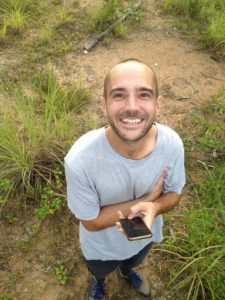
My aim is to fight for a world with more love, more solidarity and more equality. There is currently a widespread perception that the world’s most pressing problems, from the ecological crisis, to nativism, to inequality, ultimately stem from an upsurge in irrationality.
On the contrary, my work is devoted to explaining how, against what we might like to think as “enlightened”, “modern”, “rational” citizens, myths, rituals, magic and traditions shape our political attitudes and behaviours whether we like it or not. Rather than seeking to quash other’s myths with our facts then, we should be trying to harness myths for the common good.
Unsatisfied with discursive methods alone, I experiment with artists and activists. In the process, I am learning how to value artistic thought at least equally to scientific knowledge and am exploring how art can transform behaviour.
I recently got involved in Community Supported Agriculture projects, where I am exploring both firsthand and through research how direct contact with the soil and plants can transform how we relate to the world and other people.
What myths do non-religious people use in their climate and environmental activism? What does the study of everyday stories bring to the study of 'religion' and 'non-religion'? Find out in this interview with Dr. Tim Stacey by RSP Co-Founder Christopher R. Cotter.
With the rise of reactionary politics across the globe, it is arguably increasingly important for the academic community to give consideration to the prospects of developing and strengthening solidarity across apparent religious, political and economic differences. In this podcast, Chris speaks to Dr Timothy Stacey (University of Ottawa) about his forthcoming book, Myth and Solidarity in the Modern World:
This work is licensed under a Creative Commons Attribution- NonCommercial- NoDerivs 3.0 Unported License.
The views expressed in podcasts, features and responses are the views of the individual contributors, and do not necessarily reflect the views of The Religious Studies Project or our sponsors. The Religious Studies Project is produced by the Religious Studies Project Association (SCIO), a Scottish Charitable Incorporated Organisation (charity number SC047750).